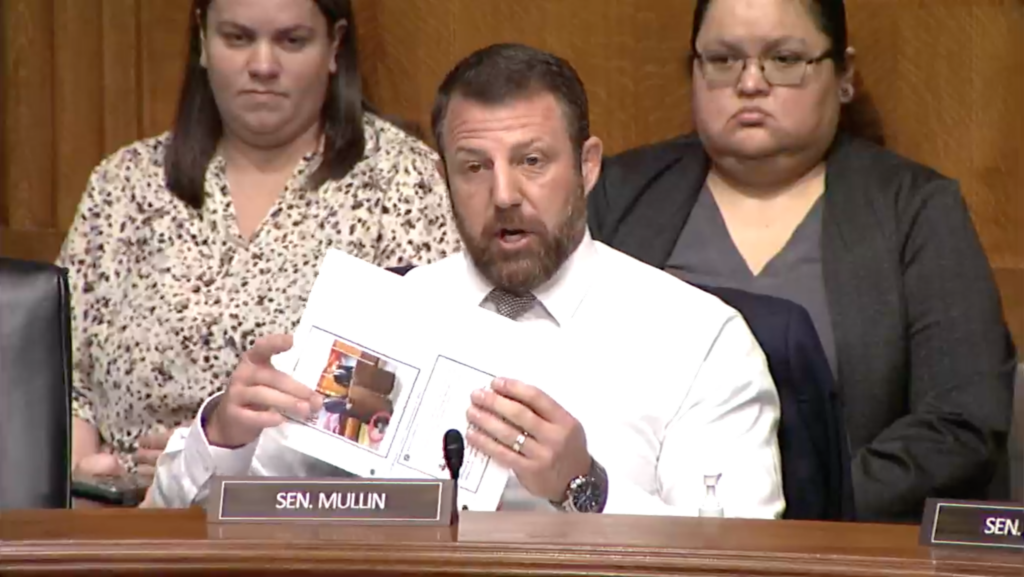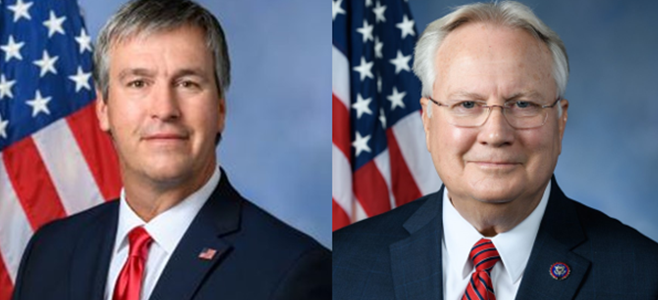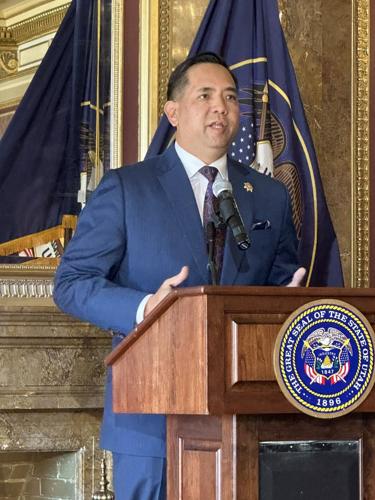Ann Eubank running as a Republican for Alabama State School Board Position – District 3

State School Board District 3 member incumbent Stephanie Bell will not seek another term, setting off a Republican scramble for the post. Conservative activist Ann Eubank is one of four Republican candidates seeking the open seat on the State Board of Education. Eubank said that no issue has been more important to her than excellence in education. Eubank said that her concern over education led to her retiring to become an unpaid full-time citizen lobbyist after witnessing what her grandson was being taught in school. Ann has dedicated the last 15 years to researching and advocating for solutions to the dismal state of affairs in the Alabama Public School System. Eubank said that Alabama public schools’ downward spiral began in 2009 when Common Core was introduced to the State School Board and was adopted the following year despite an outcry from countless parents and voters. “Running for office is the last thing I ever thought I would do, but I decided to run for state school board after Stephanie Bell, representative for School Board District 3, had not yet qualified for re-election,” Eubank said. “It’s imperative that we elect someone who will work to change the trajectory of Alabama education from the bottom of the barrel to the top of the ladder like Florida.” “Parents and students deserve State School Board members who understand this and will listen to their concerns about the serious problems we face in Alabama’s schools,” Eubank continued. “We need a new perspective on the Board. I am the only one running for this position that hasn’t been some part of the education establishment.” Eubank is a member of the Alabama Legislative Watchdogs, a group of citizen lobbyists from all parts of the state of Alabama who give in-depth analysis about legislation being put forth and passed, what it means, and how it impacts citizens. Eubank is also a member of the Jefferson County Mid-Alabama Republican Club (MARC) and has attended countless Republican club meetings all over the state as a speaker and guest. Eubank is a member of Mom’s For Liberty. “At Moms for Liberty, we understand the importance of having liberty-minded school boards throughout the country that are focused on defending parental rights and improving education,” Eubank said. “We hope to activate these types of people to public service. Every child across America deserves access to a quality education. The decisions made by school board members play a crucial role in shaping the quality of that education.” Eubank serves as Co-Chair of the Alabama Conservative Coalition. She has been a Heritage Action Sentinel since 2010. Conservative news/talk radio listeners have heard Ann in occasional radio hosting duties on WYDE and IC Radio in North Alabama. Eubank was a policy advisor for Tim James’ failed 2022 Campaign for Governor of Alabama. Eubank was a Southeastern Cruz Crew team member in Senator Ted Cruz’s presidential campaign in 2016. Eubank was a Cruz delegate at the Republican National Convention in Cleveland that year. Eubank is a member of the National and Alabama Women for Trump group. She was a member of Congressman Mo Brooks’s (R-AL05) 2018 and 2022 Senate Campaign Steering Committees. She is a member of the firearms rights group Bama Carry. Eubank is also a member of the Stop Common Core Alabama Task Force. In that role, Eubank did numerous talks on Common Core, aka National Standards, with politicians and the public. She is also a member of the Alabamians United for Excellence in Education Taskforce and one of the coordinators of the Alabama Opt-Out movement. Eubank’s efforts have been noticed. Ballotpedia identified Ann Eubank as a “top influencer by state” in 2015. She was named on Alabama Today’s 20 Alabamians who belong on any “Most Influential” list. Eubank appeared in the documentary movie “Revelation – Dawn of a Global Government” where she warned how Common Core, aka National Standards, indoctrination would turn our children into “Good Little Socialists.” Eubank has been interviewed by numerous local, state, national, and international radio, print, and television outlets. Eubank has authored many political opinion articles in numerous local and national publications. Eubank participated in Frank Luntz’s HBO Special regarding Roy Moore’s Senate Campaign that aired on HBO and Axios. Eubank, in her role as a leader of the Rainy Day Patriots, helped contribute to the 2010 Republican wave election that led to the GOP taking control of both Houses of the Alabama Legislature and the U.S. House of Representatives. She grew up in Birmingham, Alabama, and now lives in Hoover. She has been married to her husband, Jim, for 55 years. She has two daughters and two grandchildren. Kelly Mooney, former State Representative Charlotte Meadows, and Melissa Snowden have all also qualified to run for the open school board seat. The Republican Primary will be on March 5. No Democrat has qualified, so the eventual Republican nominee will likely be elected. To connect with the author of this story or to comment, email brandonmreporter@gmail.com.
ADECA seeking public comment on initial proposal for broadband expansion

On Tuesday, the Alabama Digital Expansion Division of the Alabama Department of Economic and Community Affairs (ADECA) released a draft of the Alabama Initial Proposal Volume 1 and Volume 2 for broadband expansion. ADEC is seeking public comment in advance of its submission to the National Telecommunications and Information Administration. Citizens are invited to view the draft Alabama Initial Proposal Volume 1 and Volume 2 on the ADECA website. All interested parties are invited to submit their comments regarding the draft document. Comments regarding the draft Volume 1 should be submitted via the online form. Comments regarding the draft Volume 2 should be submitted via the online form. Comments should be submitted by 11:59 p.m. on Thursday, December 14, 2023. If you are unable to access the online form, you may contact ADECA by email at broadband.fund@adeca.alabama.gov or call (334) 353-0767 for instructions on additional methods of submitting comments. The Alabama Digital Expansion Division of the Alabama Department of Economic and Community Affairs (ADECA) is also holding a webinar on Monday, November 20th, from 2:00 pm to 3:00 pm. At the webinar, ADECA will provide an overview of the recently released Alabama BEAD Initial Proposal Volume 1 and Volume 2, as well as the Alabama Statewide Digital Opportunity Plan, all of which are now open for public comment. ADECA will discuss how to submit comments on the documents, which provide information about ADECA’s plans to promote broadband deployment and digital opportunity in the state. To participate in the webinar, persons need to pre-register. ADECA will then send them a meeting link for the webinar. Governor Kay Ivey (R) and the Legislature have made expanding broadband a key goal of her second term as governor. The federal government has provided hundreds of millions of dollars to help get this done. To connect with the author of this story or to comment, email brandonmreporter@gmail.com.
Oklahoma Senator Markwayne Mullin challenges Teamsters president to fight at U.S. Senate hearing

Samantha Dietel, Alabama Reflector WASHINGTON — Sen. Markwayne Mullin, an Oklahoma Republican, challenged the head of the Teamsters union to a physical fight at a U.S. Senate hearing Tuesday intended to showcase how labor unions are making families’ lives better. The tense confrontation at the Senate Health, Education, Labor and Pensions Committee hearing stemmed from acrimonious posts on social media, as well as a confrontation between the two at an earlier Senate hearing. Tuesday’s episode started after Mullin read aloud one of Teamsters chief Sean O’Brien’s posts on X, formerly known as Twitter. In the post, O’Brien had called Mullin a “greedy CEO who pretends like he’s self made.” O’Brien, general president of the International Brotherhood of Teamsters, ended the post by writing, “You know where to find me. Anyplace, Anytime cowboy.” “So this is a time, this is a place,” said Mullin, who has a mixed martial arts background, to O’Brien, seated at a witness table in front of him. “You want to run your mouth, we can be two consenting adults. We can finish it here.” “OK, that’s fine,” O’Brien said. “Perfect.” “You want to do it now?” Mullin asked. “I’d love to do it right now,” O’Brien said. “Well, stand your butt up, then,” Mullin said. “You stand your butt up,” O’Brien said. Both men rose to their feet. Committee Chairman Bernie Sanders, an 82-year-old Vermont independent, intervened and called for them to sit down. “You’re a United States senator,” Sanders told Mullin. “This is a hearing. God knows the American people have enough contempt for Congress. Let’s not make it worse.” For Mullin’s remaining time asking questions of O’Brien and other witnesses, the two continued to throw verbal insults at each other. Sanders pounded his gavel and shouted over them in attempts to shut down the heated exchange. “We’re not here to talk about fights or anything else,” Sanders said. Mullin and O’Brien also had a tense moment at a previous committee hearing back in March. In another post on X, O’Brien told Mullin, “Sounds like you need to shut your mouth & get to work for the people of your state.” UAW strike Another main witness at the hearing, titled “Standing Up Against Corporate Greed: How Unions are Improving the Lives of Working Families,” was Shawn Fain, president of the United Auto Workers. The union reached tentative agreements at the end of October with the “Big Three” automakers — Ford Motor Co., Stellantis, and General Motors. The strike began in Detroit in mid-September but expanded to more than 20 other states. “The working class needs this committee and the entire Congress to step up,” Fain said. “You all have an essential role to play, not only supporting our fights and other fights like ours but to finish the job for economic and social justice for the entire working class.” Fain spoke about the success of the UAW’s strike and the ripple effect it has had. He referenced that auto companies Honda, Toyota, and Hyundai have raised wages since the UAW agreements. “In less than seven weeks, we won justice for our members and other workers,” Fain said. Fain said the UAW’s efforts helped significantly raise wages for over 100,000 workers, improve retirement security, secure jobs and ensure workers have “a just transition” to making electric vehicles. This transition would allow autoworkers to “flow” into a new job of making batteries for electric vehicles, Fain said. Legislative efforts Sanders, who supported the UAW’s strike, highlighted his legislation — the Protecting the Right to Organize Act, otherwise known as the PRO Act — as a means to make organization easier for American workers. Ranking member Bill Cassidy, a Louisiana Republican, said the PRO Act faces opposition from his party. U.S. Sen. Tammy Baldwin, a Wisconsin Democrat, said she is working on legislation that would require the Federal Trade Commission to additionally “consider the impact of mergers on workers.” “The workers are the ones who bear the brunt of the quote-unquote ‘efficiencies’ found after a consolidation,” Baldwin said. Protecting the right to unionize Labor organizers called for more action by Congress to help U.S. workers. The International Brotherhood of Teamsters is a labor union with members across diverse occupations. The largest employer in the Teamsters union is UPS, which reached a collective bargaining agreement earlier this year. This agreement raised wages and improved workplace conditions for UPS workers. “We need our elected officials to do more and do what’s right,” O’Brien told senators. Sara Nelson, the president of the Association of Flight Attendants-Communication Workers of America, said labor unions are “necessary for a stable economy, our safety, our security and our democracy.” Republican witnesses included Diana Furchtgott Roth, the director of the Center for Energy, Climate, and Environment and the Herbert and Joyce Morgan Fellow in Energy and Environmental Policy at the Heritage Foundation, and Sean Higgins, a research fellow at the Competitive Enterprise Institute in Arlington, Virginia. The Heritage Foundation and the Competitive Enterprise Institute are both conservative think tanks. Higgins said the increased wages as a result of union strikes could increase inflation. In response, Fain later said the idea that raising wages negatively impacts the economy is rooted in “fearmongering.” Fain said when unions bargain for a contract that includes higher wages, the opposition often believes “the world’s going to end because working-class people make a livable wage, and it’s going to drive the price of vehicles up.” Sen. Robert P. Casey Jr., a Pennsylvania Democrat, said a worker’s right to unionize “is under threat.” “Every day of the week, that right is under threat across the country,” Casey said. “That right to organize is essential to building an economy that works for all Americans.” Alabama Reflector is part of States Newsroom, a network of news bureaus supported by grants and a coalition of donors as a 501c(3) public charity. Alabama Reflector maintains editorial independence. Follow Alabama Reflector on Facebook and Twitter.
Terri Sewell votes for bipartisan plan to avoid government shutdown

On Tuesday, the U.S. House of Representatives voted in favor of a bipartisan plan to keep the government funded through January avoiding a government shutdown. New Speaker of the House Mike Johnson (R-Louisiana) was abandoned by the ultra-conservative Freedom Caucus so he was forced to negotiate with Democrats to craft the package to keep the government operating. Congresswoman Terri Sewell (D-AL07) voted with Speaker Johnson in favor of the Continuing Resolution (CR) to keep the federal government open and avoid the potentially disastrous consequences of a shutdown. The CR funds the federal government at current levels through January 19th for certain agencies and February 2nd for others. It passed the House of Representatives by an overwhelmingly bipartisan vote of 336 to 95 and will now make its way to the U.S. Senate. “We in Congress have a responsibility to the American people to keep the government open and protect the programs that families rely on,” said Rep. Sewell. “While I have some concerns about the staggered funding deadlines, this measure prevents a shutdown and protects against the extreme cuts pushed by my colleagues across the aisle. Families in Alabama can breathe a sigh of relief knowing that their Thanksgiving plans will not be affected by a government shutdown.” Sewell wrote on X, “Tonight, I voted for a bipartisan measure to keep the government open and protect the programs that Alabamians rely on. While I have concerns about the staggered funding deadlines, this measure prevents a shutdown and protects against extreme cuts pushed by my GOP colleagues.” Two Democrats and 93 Republicans voted in opposition to the bill. The bifurcated bill will extend funding at current levels until January 19 for programs and agencies for four appropriations bills: Military Construction and Veterans Affairs; Agriculture, Rural Development and Food and Drug Administration; Energy and Water Development; and Transportation, Housing and Urban Development. It extends funding for the remaining eight at current levels through February 2. It would also extend the authorization of programs and authorities in the Farm Bill until September 30 avoiding a showdown over farm programs and supplemental nutrition assistance programs for ten months. Congressman Barry Moore (R-AL02) voted against the legislation. “Our country is nearly $34 trillion in debt, and over 60% of American families are living paycheck-to-paycheck,” said Moore in a statement. “I voted against this continuing resolution because it contained no spending cuts and Americans cannot afford more of the status quo. I am committed to working with Speaker Johnson on the last five of twelve appropriations bills that contain significant cuts and a Farm Bill that prioritizes the needs of our producers.” The legislation now heads to the Senate, where it has support from both party leaders. Senate Majority Leader Chuck Schumer (D-New York) and Minority Leader Mitch McConnell (R-Kentucky). “We would like to do it as soon as possible,” Schumer told reporters. “Both McConnell and I want to avoid a shutdown, so getting this done obviously before Friday at midnight — we know the Senate has lots of arcane rules. But McConnell and I are going to work together, we talked about this yesterday, to get it done as quickly as possible.” To connect with the author of this story or to comment, email brandonmreporter@gmail.com.
U.S. House passes stopgap spending bill in bipartisan vote, in crucial test for new speaker

Jennifer Shutt, Alabama Reflector WASHINGTON — The U.S. House took a broadly bipartisan vote Tuesday to fund the government into the new year, though the measure must pass the Senate by the end of the week if Congress is going to avoid a partial government shutdown. The 336-95 House vote was the first major legislative test for Speaker Mike Johnson, the Louisiana Republican who took on the role after the former speaker was ousted after passing a similar bipartisan short-term funding bill in late September. A total of 93 House Republicans voted against the bill, but enough Democrats supported it to send the measure to the Senate. In the Alabama delegation, U.S. Reps. Robert Aderholt, R-Haleyville; Terri Sewell, D-Birmingham, and Dale Strong, R-Madison, voted for the bill. U.S. Reps. Jerry Carl, R-Mobile; Barry Moore, R-Enterprise; Gary Palmer, R-Hoover and Mike Rogers, R-Saks, voted against it. Senate Majority Leader Chuck Schumer, a New York Democrat, said Tuesday that he and Minority Leader Mitch McConnell, a Kentucky Republican, both agree the Senate needs to pass the bill quickly to avoid a funding lapse. “If the House should pass it, and I hope they do, Leader McConnell and I will figure out the best way to get this done quickly,” Schumer said. During a press conference prior to the vote, Johnson defended his decision to move the short-term spending bill, saying it would prevent Congress from passing an omnibus spending package in mid-December before the holiday break. Republicans have repeatedly said they oppose such massive packages, which wrap together all 12 government spending bills, often on short notice. He rejected criticism from fellow GOP lawmakers that he was making a mistake and taking the wrong approach to funding the government. “We’re not surrendering, we’re fighting. But you have to be wise about choosing the fights,” Johnson said. “You’ve got to fight fights that you can win, and we’re going to, and you’re going to see this House majority stand together on our principles.” Johnson said he was optimistic that Congress would be able to pass the dozen full-year appropriations bills before the new deadlines next year, avoiding the need for another stopgap spending bill. “Part of the reason I’m confident about this is, I’ve been drinking from Niagara Falls for the last three weeks. This will allow everybody to go home for a couple of days for Thanksgiving,” Johnson said. “Everybody can cool off.” During that time, Johnson said he would get a group together to “map out that plan to fight for” conservative principles in the final set of 12 spending bills. The current fiscal year ends on September 30, 2024. “I look forward to rolling that out,” he said. “You’ll see much more of that.” Two deadlines The 32-page short-term spending bill, sometimes called a continuing resolution or CR, would fund part of the federal government through January 19 and the remainder of the annual appropriations bills through February 2. The short-term funding measure is intended to give Congress and the White House more time to negotiate the dozen full-year spending bills. But there are several pitfalls along the way. Former GOP Speaker Kevin McCarthy was ousted from his leadership role after moving the short-term government funding bill in late September that will keep the federal government up and running through Friday. The decision by eight House Republicans and Democrats to vote to “vacate the chair” plunged the chamber into gridlock for weeks as GOP lawmakers debated who should lead the party. After nominating three Republicans who couldn’t get the votes on the floor to hold the gavel, the party finally coalesced behind Johnson. But some of the especially conservative members became frustrated this week with his decision to put the stopgap spending bill on the floor. The short-term spending bill would give the House and Senate until January 19 to work out an agreement on the Agriculture-FDA, Energy-Water, Military Construction-VA, and Transportation-HUD spending bills. The remaining eight spending bills — Commerce-Justice-Science, Defense, Financial Services, Homeland Security, Interior-Environment, Labor-HHS-Education, Legislative Branch, and State-Foreign Operations — would have funding until February 2. The House and Senate would need to reach an agreement well before those deadlines on the total amount of spending for the current fiscal year that began back on October 1. The leaders of the Appropriations committees would then determine how much of the money goes to each of the dozen bills. Democrats have said the total spending level should match what Congress and President Joe Biden agreed to in the debt limit law this summer. But some Republicans have pressed for lawmakers to go below that level. Lawmakers sound off on spending Idaho Republican Rep. Mike Simpson, chair of the Interior-Environment spending panel, said that leaders need to clarify the total spending number, though he expects that will ultimately match the debt limit law. “I think it will end up being that, but leadership needs to tell us,” Simpson said. Georgia Rep. Sanford Bishop Jr., the top Democrat on the Agriculture spending panel, said the total spending level for the final slate of bills that the House and Senate will negotiate in the coming weeks and months needs to adhere to the number in the debt limit law. “Some of them, particularly the MAGA Republicans, pretty much don’t agree with it. They want to cut much more drastically than is beneficial for the American people,” Bishop said. “The moderate, reasonable minds of that side think that we probably should do something that is reasonable.” Maryland Rep. Steny Hoyer, the top Democrat on the Financial Services spending panel, said a key challenge to getting full-year bills agreed to is that “Republicans have been unable for eight or nine months to get their act together on fiscal issues.” “And we’d lost a speaker over that,” Hoyer said. “They were unable to elect speakers for some period of time, and there is still no guarantee that we know what the overall spending levels are.” Ohio Democratic Rep. Marcy Kaptur, ranking member
Jerry Carl and Barry Moore support failed impeachment of Homeland Security Secretary Alejandro Mayorkas

On Tuesday night, the U.S. House of Representatives voted to thwart a motion by Congresswoman Marjorie Taylor Greene (R-Georgia) to impeach embattled Homeland Security Secretary Alejandro Mayorkas. Eight Republicans joined House Democrats to stop the impeachment effort and instead refer the motion to the Homeland Security Committee for their consideration. The eight Republicans were Representatives Ken Buck (R-Colorado), Darrell Issa (R-California), Tom McClintock (R-California), Patrick McHenry (R-North Carolina), John Duarte (R-California), Virginia Foxx (R-North Carolina), Cliff Bentz (R-Oregan), and Mike Turner (R-Ohio). All six of Alabama’s Republican Congressmen voted with Rep. Greene to proceed with impeaching Mayokas. Congressman Jerry Carl (R-AL01) wrote on X, “Tonight, the House voted on a motion to refer this impeachment resolution to the Homeland Security Committee. This motion passed, so we didn’t vote to impeach him. I voted against this motion because the House needs to take immediate action to impeach Secretary Mayorkas.” Rep. Barry Moore (AL-02) also voted against killing the resolution to begin impeachment proceedings against Homeland Security Secretary Mayorkas. Rep. Moore is also a co-sponsor of this resolution. Moore was one of the first Members of Congress to call for the impeachment of Mayorkas back in May. “Under Mayorkas’ watch, there have been 8 million illegal border encounters, 52,900 pounds of fentanyl seized at the border, more than 280 people on terrorist watchlists caught while attempting to cross the border, and 1.8 million known “got aways” who have evaded U.S. authorities,” said Moore. “In the private sector, if you don’t do your job, you get fired. Mayorkas’ failure to do his job is putting Americans in grave danger every day, and it’s past time for him to be impeached.” Carl is also a co-sponsor of Rep. Greene’s resolution. “Our southern border is wide open, and we have an unprecedented illegal immigration crisis at our southern border because Secretary Mayorkas has failed to do his job. That’s why I proudly co-sponsored @RepMTG’s resolution to impeach him.” Carl said on X. Americans for Legal Immigration PAC (ALIPAC.us) announced afterward that it is dropping the national organization’s long-standing endorsement and support for Rep. Tom McClintock after McClintock joined seven other Republicans in voting with Democrats to protect Mayorkas from impeachment. “Our decade-long support for Rep. McClintock ends today, and we call on American patriots, conservatives, Republicans, and invasion opponents to mount GOP Primary challengers to any of these eight sellouts still on the ballot in 2024,” said William Gheen of ALIPAC. “These Republicans supporting Democrat efforts to flood and overwhelm U.S. elections with illegal alien Democrat voters should be run out of office! Shame on them for depriving all Americans of a true choice against illegal globalist policies.” Rep. Marjorie Taylor Greene said that she will continue her efforts to hold the Biden Administration accountable for its thwarting of the nation’s immigration laws and the crisis on the southern border. “I will not stop fighting to hold the Biden administration accountable for their open border policies that are killing Americans every day,” Congresswoman Greene said on X. “It’s time for Republicans to grow a spine and join me in impeaching Mayorkas and others who are destroying our country.” An impeachment by the House had it occurred would likely have been rejected by the Democratic-controlled U.S. Senate if the Senate even took the matter up. To connect with the author of this story or to comment, email brandonmreporter@gmail.com.
Steve Flowers: Negative ads work and always have

Over the years, many of you have lamented to me and said, “I am so tired of seeing all negative ads with candidates lambasting each other in political campaigns. Why don’t candidates say what they are going to do when they are elected rather than bashing their opponent mercilessly?” People also suggest that campaigns are more negative today than in bygone years. Allow me to answer the question in the reverse order. Criticizing and slandering your opponent is not new. It was actually more vicious and incendiary in earlier American political life and much more personal. First of all, there were no television cameras or hidden studios where third-party political ad gurus brewed disingenuous ads. Folks in the old days would have to meet their opponents face-to-face at political forums, rallies, and debates. They would trade barbs and insults right in the face of each other. In early American political history, there were instances of fisticuffs and even a duel where opponents were shot. Nothing was off limits, not even peoples’ wives and children. What they did to Andrew Jackson’s wife Rachel was so bad that it eventually caused the poor lady to withdraw and die from depression. At least today, it seems inappropriate and out of bounds to attack people’s family members. Also, in the old days, it seemed you could say things about your opponent without there being any semblance of truth to the accusations. Today, there are laws requiring that any attack on the opposition must have a semblance or scintilla of truth. Therefore, it was worse in past decades than today, if you can believe that. The main point asked why do these campaign media gurus use negative ads. It is a simple answer: they work. If they did not work, they would not use them. Polling reveals that negative ads change the trajectory and standing of candidates dramatically and instantaneously. There is a direct correlation to a candidate’s polling numbers before and after being hit by a negative ad. Much more so than a soft, pretty ad advocating that you vote for someone because they are a competent person who would be the ideal elected public servant. These gurus know this fact because today’s polling is very accurate, and they can read the polls, and they react and design ads based on polling. In Alabama political history the most brilliant and unquestionably accomplished politician was George C. Wallace. In Wallace’s early years of “politiken” for his first terms as governor, polling was in its infancy and was not as scientifically accurate. However, George Wallace was born to be a political genius and a political animal. He had a God-given ability to remember names and he knew what people wanted to hear. He inherently could read the political tea leaves. He did not need polling. I would visit often with Wallace in his last term. I was a freshman legislator and actually represented his home county of Barbour. He would call me down from the House floor to visit with him in the Governor’s office. He would reminisce about past political forays and governor’s races. He would tell me a lot of inside stories that I will probably never share. However, allow me to share this sage political admonition he imparted to me one day. He looked me squarely in the eyes and told me that more people vote against someone than for someone. He further elaborated, “You have got to find a boogeyman to run against.” He lived and breathed this belief and strategy. He ran on the race issue and segregation for decades. He rode that horse as long as he could. However, when Black Alabamians were given the right to vote in 1965 and soon after constituted 25% of the Democratic Primary electorate, Wallace instantly changed his stripes and went down Dexter Avenue to Martin Luther King Jr.’s church and had a conversion experience and begged forgiveness for exploiting the race issue. The Black voters forgave Wallace and elected him governor that last term in 1982. I never said Wallace was a statesman. He was a true, natural politician, and, yes, a demagogue. Whatever it took to get elected was Wallace’s modus operandi. These political gurus of today know the George Wallace adage of finding a boogeyman to run against remains true. In this upcoming election year, that is why you will see countless negative ads on television because they work. See you next week. Steve Flowers is Alabama’s leading political columnist. His weekly column appears in over 60 Alabama newspapers. He served 16 years in the state legislature. Steve may be reached at: www.steveflowers.us.
More unaccompanied migrant children being ‘resettled’ in Texas than elsewhere

The greatest number of unaccompanied children (UACs) arriving at the U.S. border are being “resettled” in Texas. UACs have been sent to all 50 states and two U.S. territories, including Puerto Rico and the Virgin Islands, according to data from the U.S. Health & Human Services Department (HHS) and the Office of Refugee Resettlement (ORR), are tasked with their oversight and care. From fiscal years 2015 to 2023, the greatest total number of UACs were sent to Texas, followed by California and Florida. Every year, the most populous states received the greatest number of children. Texas received the most UACs in all nine fiscal years of 82,391, followed by California (68,249), and Florida (60,192). From fiscal years 2015 to 2018, California received the highest number of UACs. By fiscal 2019, Texas began receiving the greatest number, and has every year, primarily followed by California, then Florida. From March 2003 to July 2022, ORR says it has cared for more than 409,550 children. The overwhelming majority arriving are males by a roughly 70-30 split, according to ORR data. According to federal law passed in 2003, “When a child who is not accompanied by a parent or legal guardian is apprehended by immigration authorities, the child is transferred to the care and custody of” the ORR. Federal law requires ORR to provide UACs with food, shelter, and medical care and release them “to safe settings with sponsors (usually family members), while they await immigration proceedings.” ORR defines sponsors as “adults who are suitable to provide for the child’s physical and mental well-being and have not engaged in any activity that would indicate a potential risk to the child,” who has passed a required criminal background check. The sponsor “must agree to ensure the child’s presence at all future immigration proceedings” and ensure that the minor reports to ICE “for removal from the United States if an immigration judge issues a removal order or voluntary departure order,” according to federal law. Multiple reports have been published highlighting serious deficiencies of ORR oversight, including allegations of sexual abuse of children in ORR-contracted facilities. A Florida grand jury report found the Biden administration was “facilitating the forced migration, sale, and abuse of foreign children,” through the ORR’s UAC resettlement program. “This process exposes children to horrifying health conditions, constant criminal threat, labor and sex trafficking, robbery, rape, and other experiences not done justice by mere words,” it concluded. Florida Gov. Ron DeSantis called for the grand jury to convene, clarifying that “Florida receives no information on backgrounds, criminal history or immigration status of the UAC brought here, nor does the state have any assurance the UAC are in-fact minors.” Florida Attorney General Ashley Moody called on Congress to investigate, which resulted in hearings this year. UACs have been placed with unrelated individuals and put in situations “where they are subject to abuse, including rape, molestation, and effectively forced to work to pay for their travel to the United States in violation of child labor laws,” Moody said. HHS states that it has “strong policies in place to ensure the privacy and safety of unaccompanied children by maintaining the confidentiality of their personal information,” and has historically not communicated with state governments where children are sent. It claims this is because the “children may have histories of abuse or may be seeking safety from threats of violence” and “may have been trafficked or smuggled.” While it won’t release information about individual children that it says “could compromise their identity or location,” it does disclose how many UACs are sent to states and counties. From fiscal 2015 to 2023, the overwhelming majority of UACs were released in Texas, followed by California and Florida. Under the Obama administration, in fiscal 2015, California received 3,629 UACs, Texas 3,272, and Florida 2,908. By fiscal 2019, under the Trump administration, Texas received 9,900 UACs, California 8,447, and Florida 7,408. In the first full fiscal year of the Biden administration, in fiscal 2021, Texas received 15,341 UACs, Florida, 11,145, and California, 10,773. The outlier year was fiscal 2022, when all three states received the highest number of UACs in recorded history: Texas (19,071), California (13,730), and Florida (13,195). In fiscal 2023, Texas received the most (16,394), followed by California (11,121) and Florida, (10,542). In fiscal 2023, 22 Texas counties received UACs. The majority were sent to Harris County (over 6,000), Dallas County (over 3,200) and Travis County (over 1,700), according to HHS ORR data. In California, 21 counties received UACs in fiscal 2023. Los Angeles County received the most (nearly 4,000), followed by Alameda County (nearly 900) and Orange County (nearly 600). In Florida, 29 counties received UACs in fiscal 2023. Miami-Dade County received the most (nearly 2,000), followed by Palm Beach County (over 1,500) and Lee County (over 900). These numbers exclude all children arriving in family units being released into the U.S. The top states that received the most UACs in fiscal 2023, rounding out the top 10, were New York, Maryland, Virginia, New Jersey, North Carolina, Tennessee, and Louisiana. Republished with the permission of the Center Square.
Most Republican appellate court incumbents win without an opponent as Democrats concede state appellate courts to the GOP

Major party qualifying ended on Friday. Four Republican Alabama Supreme Court Justices won election when no opponent – Republican or Democrat came forward. Justices Will Sellers, Tommy Bryan, and Jay Mitchell were all effectively re-elected as they face no Republican primary challenger. Write-in candidates are not allowed in party primaries. No attorney qualified for any of these races as a Democrat, so they are unlikely to face an opponent in the November general election. Chris McCool gave up his seat on the Court of Criminal Appeals to run for the open Place 1 associate supreme court justice seat. He also had no Republican or Democratic opponent qualify. On the Alabama Court of Criminal Appeals, Republican incumbent Judges Richard Minor and Bill Cole were both effectively re-elected when no Republican or Democratic opponent qualified for either race. Two Republicans: Rich Anderson and Thomas Govan, qualified for the open Place 2 seat that Chris McCool is leaving to run for Supreme Court. Both Govan and Anderson work in the Alabama Attorney General’s office. No Democrat qualified for that seat either, so Govan and Anderson’s race in the Republican primary on March 5 is likely to decide this race. On the Alabama Court of Civil Appeals incumbents Christy Edwards and Terry Moore were both effectively re-elected when qualifying ended without either facing any opposition. The only incumbent appellate judge in the state to face a challenger is Republican: Republican Chad Hanson at Place 2 on the Court of Civil Appeals is being challenged in the Republican primary by Stephen Davis-Parker. There are four candidates running for Chief Justice of the Alabama Supreme Court. Chief Justice Tom Parker, also a Republican, cannot run again due to the state’s arcane mandatory retirement age for judges provision. Associate Justice Sarah Stewart is giving up her place 1 seat on the court to run for Chief Justice. Former State Senator Bryan Taylor is also running for the office. Taylor is also a former legal counsel for Governors Kay Ivey and Bob Riley. On Friday, Montgomery attorney Jerry Michael Blevins also qualified to run for Chief Justice. Chief Justice is the only state appellate race that the Alabama Democratic Party is even contesting. Judge Greg Griffin will face the eventual Republican nominee for Chief Justice in the November general election. Griffin presently is a Circuit Court Judge in Montgomery’s Fifteenth Judicial Circuit Court. Thirty years ago, Democrats dominated the Alabama appellate courts. That changed in 1994 when retired Judge Perry Hooper Sr. defeated incumbent Sonny Hornsby in a contested race for chief justice. In the years since, Republican fortunes have continued to improve. Only one Democratic candidate, Doug Jones in 2017, has won any statewide race since 2008, and no Democratic judicial candidate has won a statewide race since Sue Bell Cobb was elected Chief Justice in 2006. Democrats are hopeful that Judge Griffin can change their fortunes next year. There is still a slight possibility that an attorney could still qualify as an independent or third-party candidate for one of these offices. To connect with the author of this story or to comment, email brandonmreporter@gmail.com
Utah attorney general claims victory in Wawa data breach settlement case

The United States Court of Appeals for the Third Circuit recently sided with a coalition of attorneys general led by Utah Attorney General Sean D. Reyes. It happened after Reyes led an amicus brief in Wawa v. Frank. The decision gave, “the Utah Attorney General’s Office a legal victory in an important case involving a question of reasonable settlement awards to consumer class members and class counsel,” according to Reyes’ office. This challenge came about after Wawa’s settlement of a nationwide data breach case gave more money to class counsel ($3.2 million in fees) than it did to the victims in question; the victims received $80,000 cash and a potential for $2.8 million in low-value gift cards. The class counsel got that amount based on $9 million in gift cards initially being made available to class members by Wawa. However, that figure was scaled down, and the attorneys general argue that the actual relief delivered is far lower and that fewer than 5% of these gift cards are likely to be redeemed. The attorneys general argued that the attorneys should receive fees based on what settlement relief class members receive. In this instance, class counsel would likely receive over 93% of the settlement value due to the low redemption rates of the low-value gift cards, the attorneys general contended. “For example, if recipients of the delivered gift cards redeemed on the high end of the studies (5%), that would represent an award of $140,000 (in addition to the $80,000 in cash) to consumer class members compared to the $3.2 million designation to class counsel,” a release said. In the appeals court opinion, a panel of three judges sided with the attorneys general; their ruling axed the previous determination of awarded fees and remanded the case to the district court for reconsideration. Judge Paul Matey wrote the decision. In it, he directed the lower court “to consider whether ‘the funds made available to class members rather than the amount actually claimed during the claims process’ is the best measure of reasonableness; and whether the fee award is reasonable in light of any side agreements between class counsel and Wawa.” Reyes praised the Court for its decision. “Throughout my time in office, I have worked to safeguard the economic interests of hard-working Americans,” Reyes said. “In this case, our team in Utah led a national coalition of states determined to fight for our citizens. I applaud the decision of the Court to stand with consumers and create sensible precedent for future class actions. Thank you to all of my AG colleagues who joined in our successful amicus brief.” Other states that joined Utah on the amicus brief include Alabama, Arkansas, Indiana, Kentucky, Montana, South Carolina, Tennessee, Texas, and Virginia. Read the amicus brief here. Republished with the permission of The Center Square.


